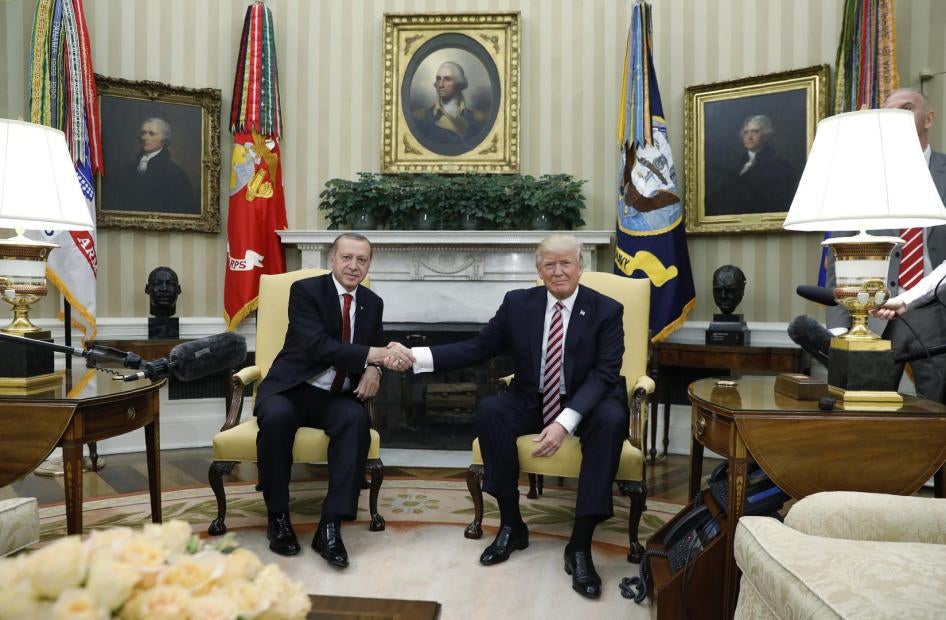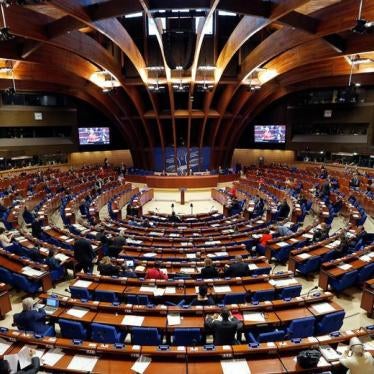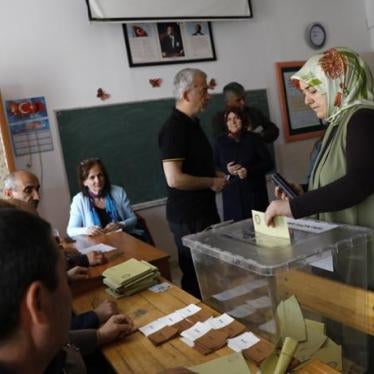On a hot summer night last July, elements of the Turkish military attempted a coup. It failed, but at least 241 people were killed and about 1,400 injured during related clashes in Ankara, the capital, and Istanbul.
A few days later, President Recep Tayyip Erdogan declared a state of emergency, giving him broad and sweeping powers to bypass parliament and ignore the Constitutional Court.
In the name of snuffing out the coup plotters, Erdogan’s government has shuttered news outlets, jailed journalists and opposition party members, and purged thousands upon thousands of government employees. The actions intensified a crackdown on free speech and expression that had been underway for quite some time.
In April, a landmark referendum changing the Constitution formalized Erdogan’s consolidation of power, undermining the role of courts and parliament as checks and balances on the president.
On the heels of this lurch away from democratic norms and rule of law, after which President Trump called to offer his congratulations, Erdogan will make an official visit to the White House on Tuesday.
The principal focus of the visit is expected to be disagreement over Syria policy, which the White House perpetuated by announcing on last week that it would provide additional military aid to Syrian opposition forces dominated by a Syrian Kurdish armed group. Turkey sees this as unacceptable indirect support for the decades-long Kurdish insurgency in Turkey. Another thorny issue will certainly be the requested extradition of the U.S.-based Muslim cleric Fethullah Gulen, whom Ankara accuses of orchestrating the coup.
But what’s likely to be absent from the conversation is just as telling.
We should expect no substantial discussion of the 150 journalists detained in Turkey on misleading or bogus charges, or the elected politicians from peaceful pro-Kurdish parties who remain behind bars. Also unlikely to be on the agenda: The fate of the 50,000 people swept up on overly broad terrorism charges, or even the more than 100,000 civil servants permanently dismissed with no right of appeal.
Conversations about Syria probably won’t include the 3 million Syrians hosted by Turkey — more than half of them women and children. President Trump has made clear that his primary response to their suffering is to try to ban even the most vulnerable from being resettled here and to propose major cuts to U.S.-funded programs that support their most basic needs. For its part, Turkey been harassing foreign aid groups and even forced the closure of Mercy Corps, an organization that has been supporting hundreds of thousands of civilians across the border in Syria.
President Trump’s recent meetings with Egyptian President Abdel Fattah al-Sisi and Chinese President Xi Jinping show there will be no hesitation to embrace Erdogan as a strong leader, possibly even a “fantastic guy.” The implied support for Erdogan’s autocratic approach indicates a real apathy for the deterioration of the rule of law in Turkey — and beyond.
But Erdogan shouldn’t expect a free pass in Washington. Congress does exercise vital checks and balances on U.S. presidential power, and its members are likely to puncture the notion that America will offer only uncritical support for Erdogan’s tactics.
Indeed, on May 3 a group of 15 bipartisan senators — led by Ben Cardin, D-Md., and Marco Rubio, R-Fla. — reasserted the need to include human rights as a central component of U.S. foreign policy. And the Senate Armed Services Committee chair, John McCain, R-Ariz., noted in a May 8 New York Times op-ed that the U.S. is a “country with a conscience (that has) long believed moral concerns must be an essential part of our foreign policy.”
Trump and Erdogan may find common ground as leaders with little interest in oversight or checks on power. And they are likely to double down on a strengthened partnership in the name of combating terrorism even if they remain at odds on Syria. Even so, Trump should be aware that ignoring Erdogan’s erosion of rule of law — and his targeting of critics, journalists and politicians as “terrorists” — will not make Turkey a more reliable ally that can effectively address legitimate security threats.







